Week 1 - Global Health Issues
I've done the readings and watched the videos for weeks one and two, and I've began to reassess the way that I perceive the world as a westerner, similar to Professor Hans Rosling suggested, "Us as the western world, and them as the third world."
I have to agree that I have always believed that there are greater disparities between the two worlds. In all actuality there is such a spectrum of health disparities within each country that there is no telltale way to homogenize health descriptions of a country or region becuase the best health care of the third world may be better than the worst care of the western world.
In regards to the 8 Millenium Developed Goals by 2015 all I can say is wow, what an ideal. The MDGS 8 ideals, see pitcure above. I feel so synical to think that none of these will be acheived - but I have a hard time believing that our nation will contribute to these goals internationally when all our politians in DC seem to be focused on is winning a war that we are under staffed, ill-equipped to win - and yet determined to stay the course for however long stubborness guides the way. As some are calling it, the worst foreign-policy blunder since the Vietnam War.
Week 2 - Does Inequality Matter?
Plato once said, “There should exist among the citizens neither extreme poverty nor again excessive wealth”, he wrote, “for both are productive of great evil,” a very biased opinion at inequality... if I don't say so myself. However, there is a substantial amount of evidence to support this statement - in the areas of wealth, religion, gender, ethnicity. As case examples Pakistan and their unequal gener issues along with their coinciding decreased economic growth; as well as Bolivia and Ecuador's conflict about natural resources between wealthy and the poor indigenous people and overall decreased outputs.
I really agreed with the idea that there is a strong correlation between poverty and inequality. One really cool thing that I liked from one reading was about comparing the average income of the poorest 20% of the people, as a way to compare statistics as opposed to comparing average income of countries.
The video looking at Taiwan, Vietnam and Kenya was very eye opening. I didn't realize how important globalization is to benefitting the economy and living conditions. I am very impressed at how far Taiwan has come, and I found it very unique that the Kenyans said that when they needed food during drought - no food was aided, but when they were harvesting wheat - wheat was imported with an overabundance and market competition. Here's the video link: http://video.google.com/videoplay?docid=5633239795464137680&q=globalization&hl=en
I've done the readings and watched the videos for weeks one and two, and I've began to reassess the way that I perceive the world as a westerner, similar to Professor Hans Rosling suggested, "Us as the western world, and them as the third world."
I have to agree that I have always believed that there are greater disparities between the two worlds. In all actuality there is such a spectrum of health disparities within each country that there is no telltale way to homogenize health descriptions of a country or region becuase the best health care of the third world may be better than the worst care of the western world.
In regards to the 8 Millenium Developed Goals by 2015 all I can say is wow, what an ideal. The MDGS 8 ideals, see pitcure above. I feel so synical to think that none of these will be acheived - but I have a hard time believing that our nation will contribute to these goals internationally when all our politians in DC seem to be focused on is winning a war that we are under staffed, ill-equipped to win - and yet determined to stay the course for however long stubborness guides the way. As some are calling it, the worst foreign-policy blunder since the Vietnam War.
Week 2 - Does Inequality Matter?
Plato once said, “There should exist among the citizens neither extreme poverty nor again excessive wealth”, he wrote, “for both are productive of great evil,” a very biased opinion at inequality... if I don't say so myself. However, there is a substantial amount of evidence to support this statement - in the areas of wealth, religion, gender, ethnicity. As case examples Pakistan and their unequal gener issues along with their coinciding decreased economic growth; as well as Bolivia and Ecuador's conflict about natural resources between wealthy and the poor indigenous people and overall decreased outputs.
I really agreed with the idea that there is a strong correlation between poverty and inequality. One really cool thing that I liked from one reading was about comparing the average income of the poorest 20% of the people, as a way to compare statistics as opposed to comparing average income of countries.
The video looking at Taiwan, Vietnam and Kenya was very eye opening. I didn't realize how important globalization is to benefitting the economy and living conditions. I am very impressed at how far Taiwan has come, and I found it very unique that the Kenyans said that when they needed food during drought - no food was aided, but when they were harvesting wheat - wheat was imported with an overabundance and market competition. Here's the video link: http://video.google.com/videoplay?docid=5633239795464137680&q=globalization&hl=en
The second video posed an issue, why do we only think about health or safety when it is challenged."
Most shocking, was the part about the Marshall Islands have endured with the 67 bombs... and their aftermath of harming the regional inhabitants. Here's the video link: http://video.google.com/videoplay?docid=-2366159791400068176&q=globalization&hl=en
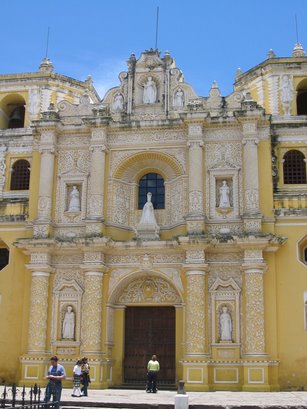


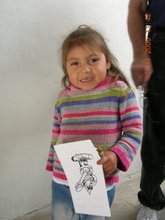
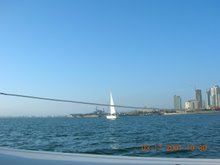


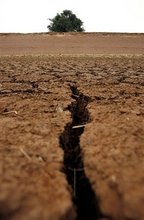

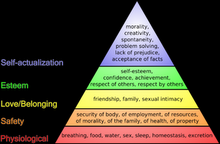
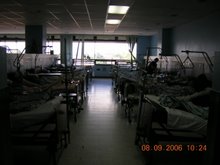

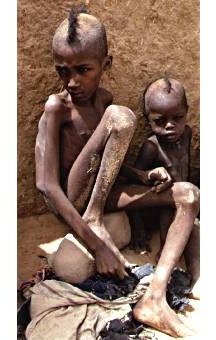




2 comments:
Hey Alexis! Great blog so far, I love the pictures and the quote on Plato. Is that from the Republic? We can take a lot from those early teachings, especially the idea of questioning the everyday norms we take for granted of our society. Thanks for posting that article from the WSJ. Very interesting indeed.
Yes the quote is from the Republic.
Post a Comment